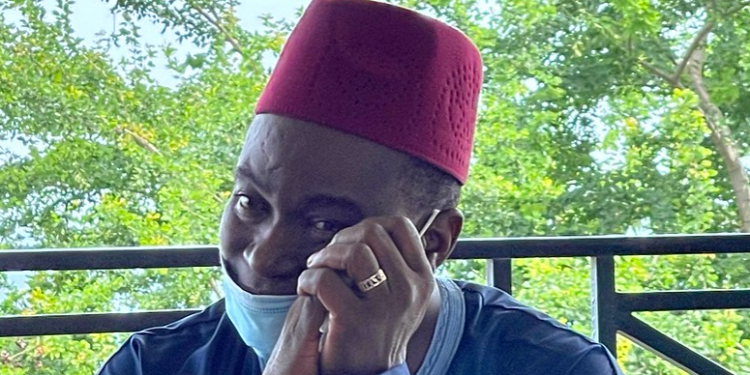In a strongly-worded response, Alfred Peter Conteh, the self-proclaimed legitimate Chairman of the Interim Transitional Governance Committee (ITGC) of the All People’s Congress (APC), has dismissed a disclaimer issued by the APC’s de facto Secretary General, Lansana Dumbuya. The disclaimer, dated November 26, 2024, sought to discredit Conteh’s calls for the release of detailed results from Sierra Leone’s contentious June 24, 2023, general elections.
Conteh accused Dumbuya of deliberate dishonesty and collusion with the Electoral Commission of Sierra Leone (ECSL) in what he described as a “government-sponsored de facto executive” within the APC. He emphasized his legal claim to the party’s leadership based on a High Court ruling by Justice Adrian Fisher on April 28, 2022, which recognized the ITGC’s authority over the APC until the party’s next National Delegates Conference.
Central to Conteh’s rebuttal was his insistence that the ECSL has failed to provide detailed election results for the June 24 polls. He called on all Sierra Leoneans and the international community to demand transparency, stating that the lack of results undermines the country’s democratic integrity.
“The people of Sierra Leone, regardless of political affiliation, must be alarmed by the absence of detailed results,” Conteh said. “Elections are decided at the ballot box, not through secretive agreements between political actors and the ECSL.”
He took issue with claims by Dumbuya that all electoral grievances had been addressed, accusing the APC’s current leadership of prioritizing personal interests over democratic principles. Conteh argued that any resolutions reached without public disclosure of the detailed results amounted to a betrayal of Sierra Leoneans who participated in the elections.
Conteh reiterated his legal authority as the APC’s interim leader under the High Court’s ruling. He criticized what he described as judicial interference that allowed another High Court judge, Justice Harmah Bonnie, to issue an interlocutory injunction that effectively froze the implementation of Justice Fisher’s ruling.
“Interlocutory injunctions are temporary measures meant to preserve the status quo,” he explained. “It is deeply concerning that this injunction has now lingered for over 20 months without resolution, undermining the rule of law and delaying justice.”
Conteh called on the Sierra Leone judiciary to expedite its verdict on the matter, urging development partners and international observers not to recognize agreements made by the APC’s current leadership with the ECSL.
Conteh urged lawyers within the APC, as well as civil society organizations, to demand accountability from the ECSL. He argued that Sierra Leone’s democracy could not survive if electoral outcomes continued to be negotiated behind closed doors.
“The only way forward is for the ECSL to publish the detailed results of the elections held on June 24, 2023,” he said. “Democracy demands transparency, and the citizens of Sierra Leone deserve nothing less.”
Conteh’s letter reflects deepening divisions within the APC and raises broader questions about the legitimacy of Sierra Leone’s electoral process. As the nation grapples with the fallout, all eyes remain on the ECSL and the judiciary to determine the next steps in resolving this political impasse.











